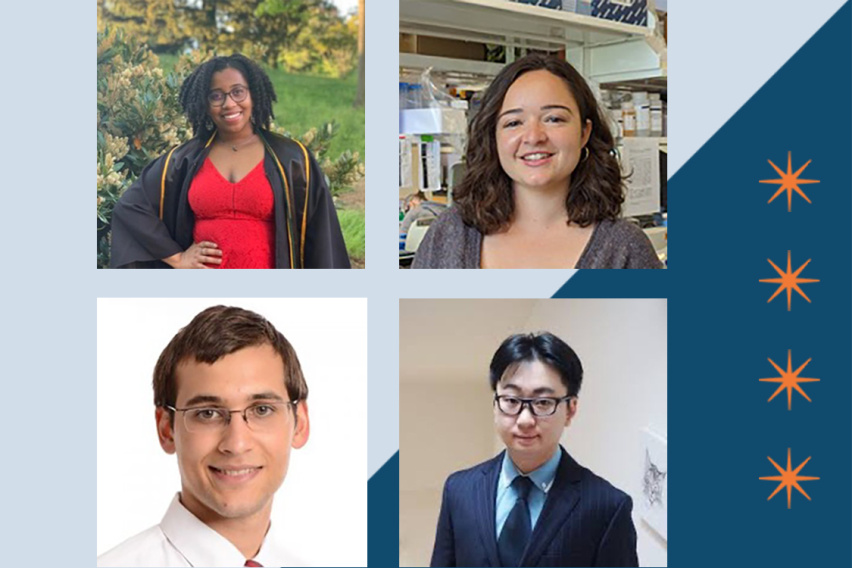MIT Koch Institute
November 13, 2023
The Marble Center for Cancer Nanomedicine and the MIT Center for Precision Cancer Medicine are pleased to announce the 2023-2024 class of Convergence Scholars. Founded in 2017, the Convergence Scholars Program (CSP) is designed to enhance the career development of aspiring independent scientists with diverse interests across academia, industry, science communication, and STEM outreach. This year's scholars are Jonuelle Acosta (Hemann Lab), Margaret Billingsley (Hammond Lab), Asheley Chapman (Irvine Lab), Allison Greaney (Langer Lab), Yizong Hu (Anderson Lab), Vardhman Kumar (Bhatia Lab), Corey Stevens (Belcher Lab), Elen Torres (Spranger Lab), and Bocheng Wu (Koehler Lab).
